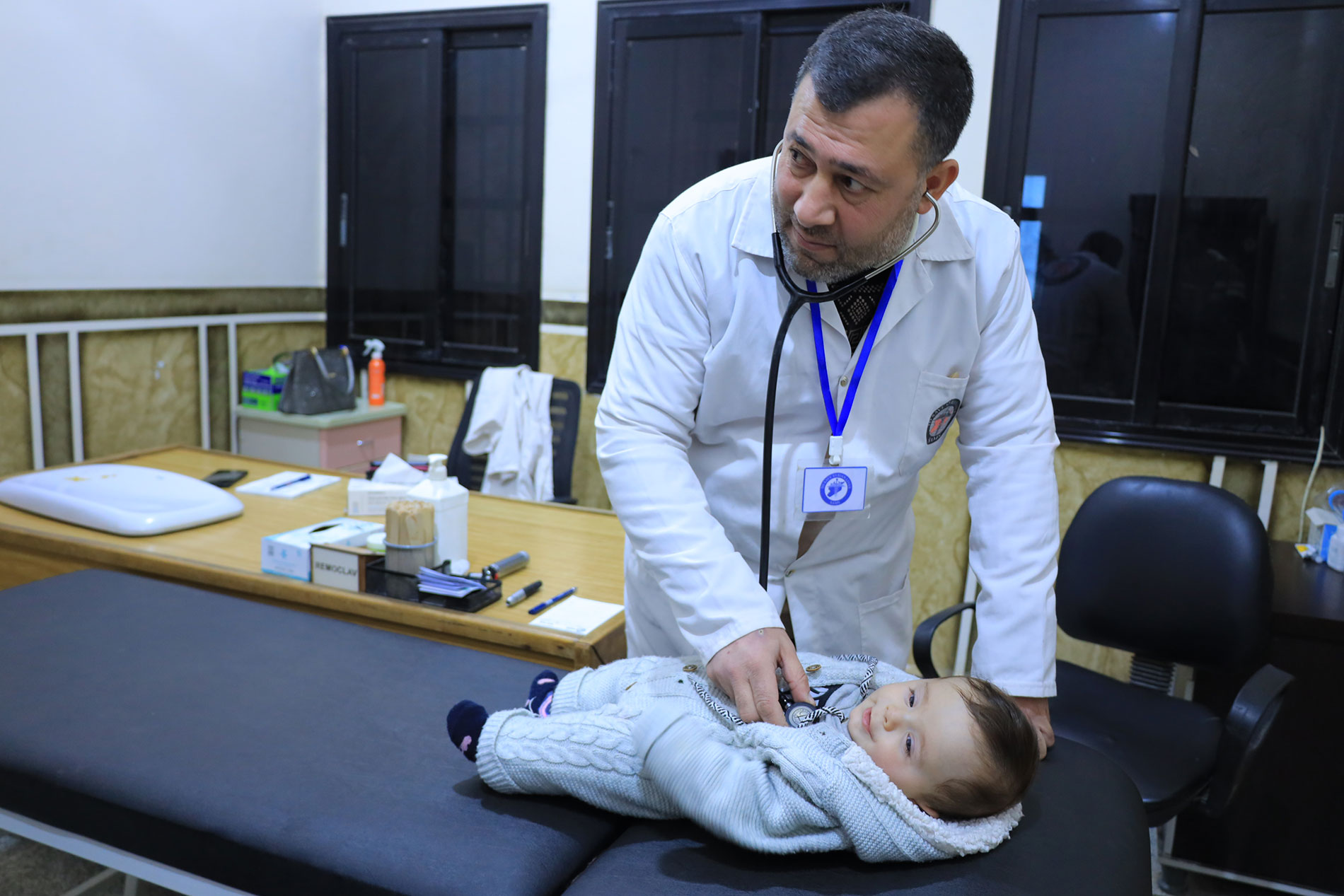 Four-month-old Walid receives treatment for severe cold symptoms at Kurin Health Center, supported by WHO through CERF to ensure continued pediatric care. Photo: WHO6 May 2025, Damascus, Syrian Arab Republic – The World Health Organization (WHO) is expanding lifesaving health care for over half a million people across Syria with support from the United Nations Central Emergency Response Fund (CERF). A US$ 3 million allocation is helping WHO sustain essential medical services, disease surveillance and mental health care in governorates heavily affected by displacement and ongoing humanitarian needs.
Four-month-old Walid receives treatment for severe cold symptoms at Kurin Health Center, supported by WHO through CERF to ensure continued pediatric care. Photo: WHO6 May 2025, Damascus, Syrian Arab Republic – The World Health Organization (WHO) is expanding lifesaving health care for over half a million people across Syria with support from the United Nations Central Emergency Response Fund (CERF). A US$ 3 million allocation is helping WHO sustain essential medical services, disease surveillance and mental health care in governorates heavily affected by displacement and ongoing humanitarian needs.
Over 15.8 million people across Syria need urgent humanitarian health support. Among them, an estimated 7.4 million people are still internally displaced, 69% living in host communities and 31% in camps. The health system is under immense strain, with only 59% of hospitals and 46% of primary health care centres fully functional. Essential medicines are limited, treatment costs are out of reach for many families and overcrowded shelters increase the risk of disease outbreaks.
CERF’s support is enabling WHO and its health partners to deliver over 1.3 million treatment courses and more than 19,000 emergency health kits to health facilities nationwide. Nineteen mobile medical teams are providing direct care – consultations, referrals and follow-up – in underserved areas including Aleppo, Ar-Raqqa, Hama, Deir-ez-Zor, Homs, Lattakia and rural Damascus. Mental health and psychosocial support services are also being expanded through key referral hospitals such as Azaz and Ibn Khaldun, targeting people affected by displacement and trauma.
“This funding plays a vital role in enabling WHO to maintain emergency services and respond swiftly to health needs on the ground, particularly at this critical moment in Syria,” said Acting WHO Representative in Syria Christina Bethke. “CERF is a timely enabler of WHO’s response, its support helps us reach those most in need with lifesaving care at a time when needs are growing, and resources are stretched. This contribution ensures that even the most vulnerable are not left behind.”
In line with its preparedness mandate, WHO is also reinforcing disease surveillance and public health preparedness at entry points. This includes upgrading infrastructure, supplying critical materials and training frontline health workers on health regulations and standards to enhance early detection and response to potential outbreaks.
The 6-month initiative will directly benefit more than 530 000 people, including displaced populations – both IDPs and refugee returns, host communities and vulnerable families, and indirectly support around 5 million through improved systems and coverage.
Media contacts:
In Damascus, Syria: Halah Kabash,
Cette adresse email est protégée contre les robots des spammeurs, vous devez activer Javascript pour la voir.
In Gaziantep, Türkiye: Mrinalini Santhanam,
Cette adresse email est protégée contre les robots des spammeurs, vous devez activer Javascript pour la voir.




